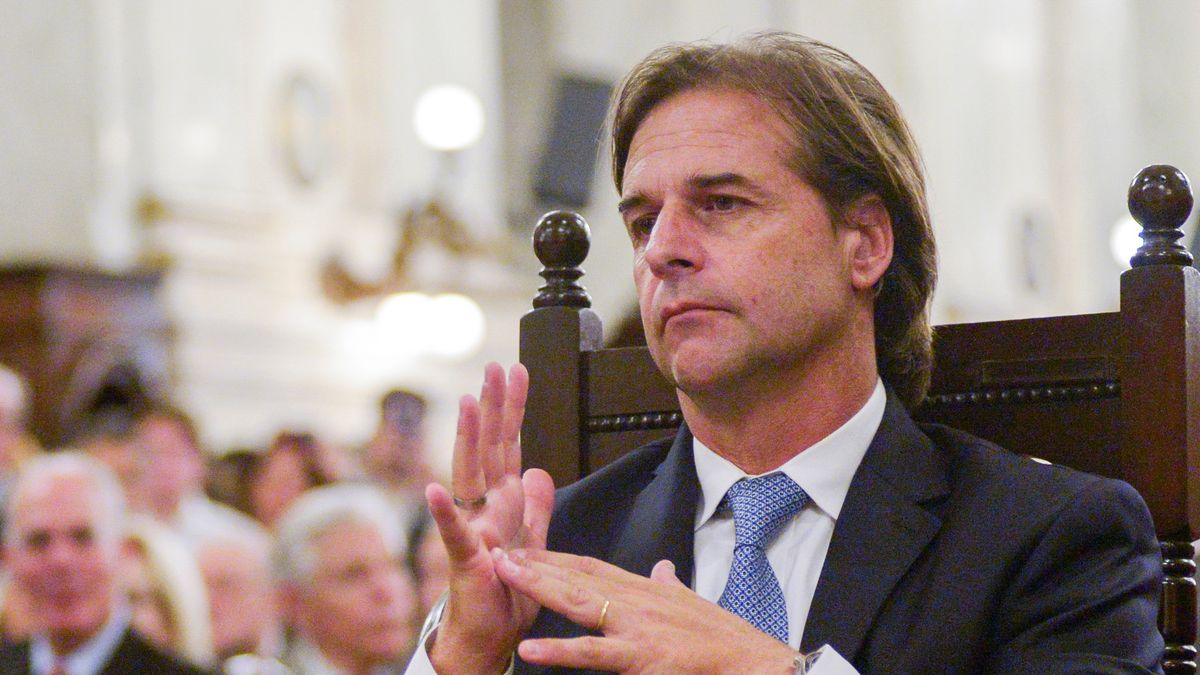Uruguay is on the lips of the international media but, contrary to what the government of Luis Lacalle Pou, It is not because of the positive aspects of being a democratic country, a “serious country that meets its commitments”; but for being “losing its reputation as a Latin American success story”.
This was established by the British media The Economistwhich titled the article referring to the country as “Losing its shine” in the printed version, while in the digital version it was even more forceful, referring to the reputation of Uruguay.
“Caught between a Brazil politically polarized and a Argentina economically dysfunctional, Uruguay seems like a model country. More than 95% of its electricity comes from the sun, wind, water and biofuels. Same-sex couples can marry. Residents can buy cannabis at pharmacies. In international comparisons, Uruguay ranks as the most peaceful and least corrupt country in South America. Other leaders hide in the palaces; the president of Uruguay, Luis Lacalle Pou, works from a glass office, in front of a block of apartments”, reviews The Economist at the opening of the article, giving an account of the positive aspects of the country.
However, it does not take long to list the reasons why, despite so many benefits, Uruguay begins to lag behind the same image that it created towards the world.
Corruption and crime, the Achilles heels of the government?
“This brilliant reputation has recently faded”, The Economist does not take long to sentence in its second paragraph. The main reason he points out is the Astesiano case, which involved the former head of presidential security, Alexander Astesianoin a complex network of different crimes that led to a sentence of four and a half years in prison for influence peddling, criminal association and disclosure of state secrets.
“The fall of Astesiano, a former police officer, is extremely shameful for the conservative Lacalle Pou. He says that he had no indication that his ex-bodyguard was up to any good. But in the 20 years that have been known, Mr. Astesiano has had various entanglements with the lawwhich include police investigations into allegations of fraud and theft”, continues the London newspaper, one of the most prestigious in the world. United Kingdom.
However, this It is not the only case of corruption that splashed the apparently spotless multicolored government. “In 2021, the Minister of Tourism [Germán Cardoso, hoy diputado colorado] He resigned after allegations of corruption, which he denies. This year, Sebastian Marset, an alleged drug lord, escaped capture in Dubai after the Uruguayan authorities issued him a new passport. In December 2022, the Vice Minister of External relationships [Carolina Ache, también colorada] resigned over the case. In January, the Minister of Environment [Adrián Peña, también colorado] resigned after it emerged that he had falsely claimed he had a business degree.”
In a list painted in red, the British weekly lists the latest headaches for President Lacalle Pou; and they do not leave aside the fact that “it is believed that Marset played a role in the events that have turned the country into a center of international crime”.
The recent rise in crime and delinquency is the other sticking point for the government, according to The Economist, which notes that “many question whether the country will remain a law-abiding exception in a violent region.”
“The security situation has been deteriorating for decades, says Nicholas Centurion, organized crime investigator. But Covid-19 exacerbated the problem. With flights reduced, gangs piled Andean cocaine into containers shipped via Montevideo to Europe. In the last decade, the homicide rate in Uruguay has almost doubled, to 11.2 per 100,000 inhabitants in 2022”, warns The Economist.
Likewise, and citing InSightCrime —a foundation dedicated to the study and investigation of threats to national and citizen security in Latin America and the Caribbean—, maintains that “gangs send assault weapons and ammunition between Argentina and Brazil through Uruguay.” In addition, he adds that “illegal fishing fleets are taking advantage of lax controls in the free port of Montevideo, the capital.”
However, and taking the words of the director of Option Consultants, Rafael Porzecanski, “corruption in Uruguay is not endemic”, and “Lacalle Pou can probably recover from these recent scandals”. With the elections in the offing, just over a year and a half away, the polls are beginning to recover in terms of the perception of the management’s performance, although crime continues as a main concern of voters.
Source: Ambito




